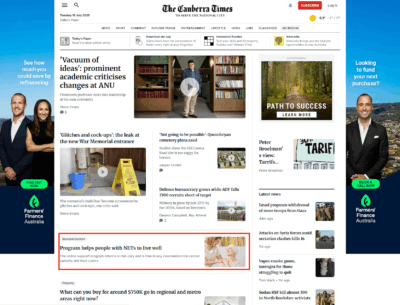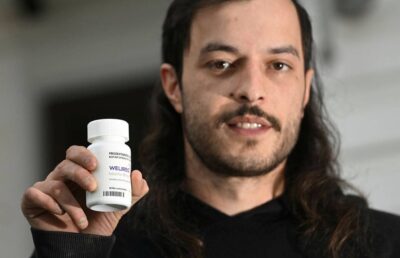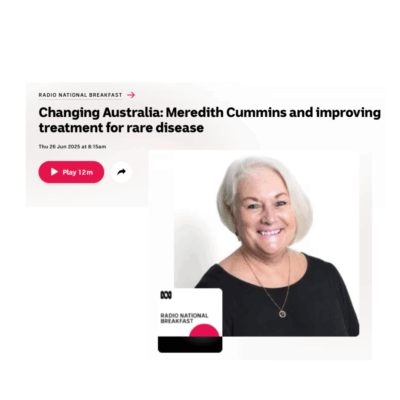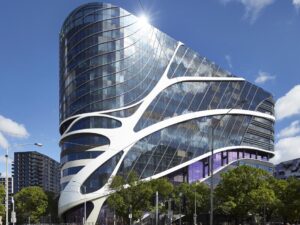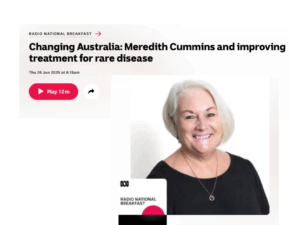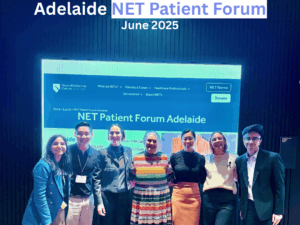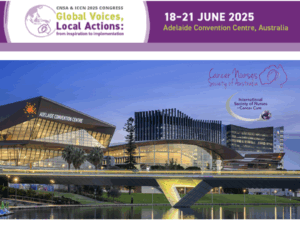On April 20, the Unicorn Foundation CEO Simone Leyden was invited to give evidence at the Senate Inquiry into "The availability of new, innovative and specialist cancer drugs in Australia".
This was a fantastic opportunity to speak about Neuroendocrine Cancer and the issues patients face in geting access to the best treatments. The Unicorn Foundation joined with Rare Cancers Australia to put forward recommendations on how the health system can better adapt to the challenges faced by patients living with rare cancers. The current criteria set out for drugs to be subsidised on the PBS disadvantages new drugs for rare cancers as the lack of clinial trials due to small patient numbers and the high costs do not provide the required economies of scale.
Below is The Unicorn Foundation's opening statement and Inquiry submission. To view the day's proceedings click on http://www.parlview.aph.gov.au/browse.php and click on the April 20 session.
"Thank you to everyone involved in todays inquiry and for the opportunity to speak today. When our sister Kate was given the devastating diagnosis of terminal , incurable Neuroendocrine cancer at the age of 30 our world was torn apart. Little was known about her disease and she like others in her position were largely neglected by the health system, as they fell into the too hard basket. Kate had the means and the ability to visit experts around the world from New York to Sweden and the best care and specialists we found were right here in our own backyard.
We have a highly regarded and respected healthcare system and the TGA, PBAC and MSAC do an honourable job in providing universal healthcare in this country, however we need to evolve our system to keep up with advancements in technologies and the paradigm shift towards personalised Medicine. In the case of an incredibly effective treatment for Neuroendocrine cancer patients, Peptide Receptor Radionuclide Therapy or PRRT which unfortunately is only used as last resort, is not pharma backed or sponsored and thus despite incredible success in its use in the last 20 years at Peter MacCallum amongst other institutions, without the money to put towards a submission and clinical trials it is still considered experimental. It falls to our small charity, that receives no funding and relies on fundraising, to invest in a phase 11 randomised clinical trial which the results are eagerly awaited around the globe, this may help with a submission through either MSAC who surprisingly considers the therapy a device or hopefully PBAC in the unlikely event that we ever get enough money for a submission.
Our system is not broken but this clearly shows it definitely needs improvement and we should strive for excellence when it comes to cancer and the lives of our fellow Australians.
In order to move forward we must work together, it should not fall just to government or its departments, it can not fall just to Pharma to spend billions on R&D, specialists need to be able to treat patients with the most appropriate treatments no matter what the costs and we can not dismiss the intelligence of today's cancer patient and the access they have to information whether correct or incorrect.
We need to share the risk when it comes to investment in R&D, we need to build the evidence and have effective registries, maintain the highest safety standards for our citizens and we need greater collaboration between all stakeholders and transparency in the decision making process. In doing so we will enjoy the ultimate reward, a healthy and productive community and to not lose love ones before their time."

